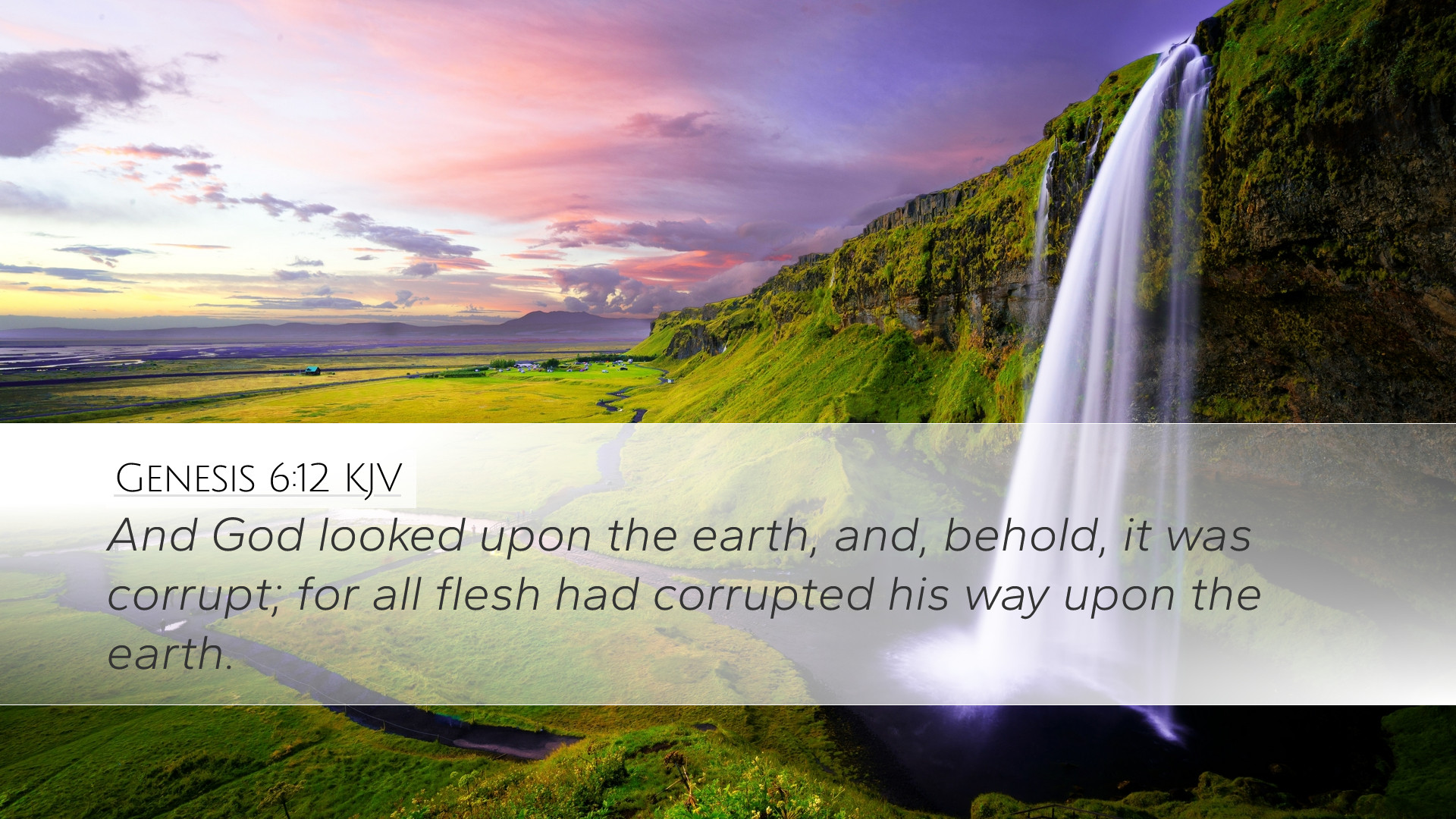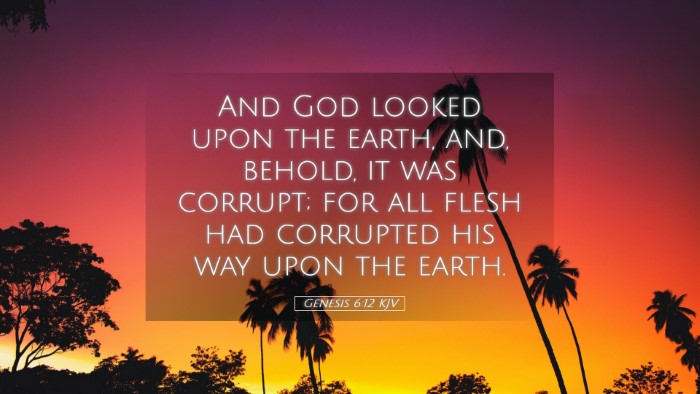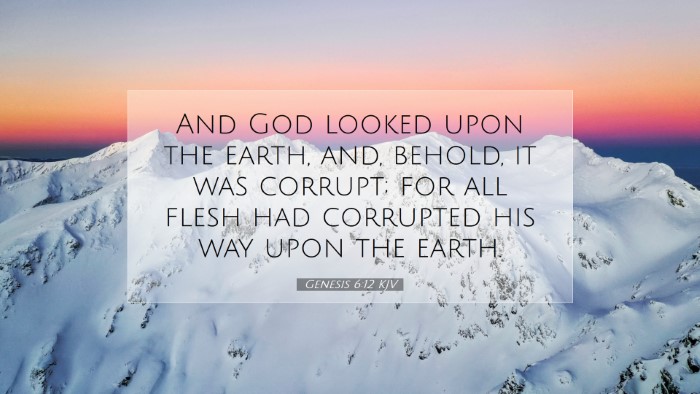Commentary on Genesis 6:12
Genesis 6:12 states: "And God looked upon the earth, and, behold, it was corrupt; for all flesh had corrupted his way upon the earth."
Context and Overview
This verse is pivotal in the narrative of the Flood. It depicts the moral decay and spiritual corruption of humanity prior to God's ultimate judgment. The context reveals a world that has strayed far from the principles laid down in creation, showcasing a degradation of human nature that warrants divine intervention.
Verse Analysis
Divine Observation
The phrase "God looked upon the earth" indicates an active participation of the Divine in the affairs of humanity. Matthew Henry emphasizes that God’s gaze is not merely a glance but a thorough examination of human conduct. This observation leads to the divine conclusion about the state of the earth—a crucial point that signifies a turning point in God's dealings with humanity.
The Nature of Corruption
The term "corrupt" conveys the idea of decay, perversion, or moral degradation. Albert Barnes notes that this corruption encompasses all aspects of human life, suggesting that it is not limited to certain individuals or groups but is widespread among all flesh. The use of "all flesh" points to the universality of sin, a theme echoed throughout Scripture (Romans 3:23).
Corruption of the Way
The expression "corrupted his way" suggests a departure from the paths of righteousness ordained by God. Adam Clarke explains that the ways of God are perfect, but humanity had chosen paths of wickedness. This deliberate choice reflects a fundamental aspect of human freedom, wherein individuals are accountable for their decisions and actions.
Theological Implications
The Problem of Sin
Genesis 6:12 serves as a stark reminder of the pervasive nature of sin. Theological scholars point to this verse as foundational in understanding the fallen state of humanity. The corruption described reflects an ongoing theme in the Bible concerning human disobedience, starting from Adam and Eve. Matthew Henry argues that God’s justice demands a response to such widespread evil, setting the stage for the Flood as divine retribution.
God’s Judgment and Grace
The observation of corruption leads to God's decision to cleanse the earth. However, within this narrative of judgment, there exists a glimmer of grace. Adam Clarke highlights that amidst the judgment, God preserves Noah, indicating that divine mercy often accompanies judgment. This duality of justice and grace is a recurring theme throughout the Bible that continues to resonate in theological reflections today.
Practical Applications
Self-Examination
Genesis 6:12 prompts believers to engage in self-examination. As the earth was corrupt, individuals are encouraged to reflect on their moral and spiritual lives. Pastors can call their congregations to assess their ways in light of Scripture, challenging them to pursue righteousness and live in a manner pleasing to God.
The Nature of Community
The communal aspect of sin depicted in this verse underscores the responsibility believers have towards one another. Albert Barnes states that individual corruption can lead to corporate judgment. Thus, the body of Christ is called to accountability, encouraging communal holiness and support in pursuing God's way.
Hope Amidst Judgment
Finally, this verse reminds believers of the hope found in God’s mercy. Where sin abounds, grace abounds much more (Romans 5:20). The preservation of Noah serves as a profound symbol of hope, suggesting that even in the darkest times, God can find a remnant and extend grace.
Conclusion
Genesis 6:12 reveals critical truths about the nature of sin, divine judgment, and the gracious character of God amidst judgment. For pastors, students, and scholars, this verse serves as a reminder of the constant need for vigilance against moral decay, urging them to reflect God’s righteousness in their lives and communities.
Further Reflections
- Reflection on Corruption: Consider the ways in which society mirrors the corruption of Noah’s time.
- Reflection on Grace: Ponder how God’s grace can be evident even in times of widespread sin.
- Reflection on Accountability: Assess personal and communal responsibilities in maintaining biblical standards.


